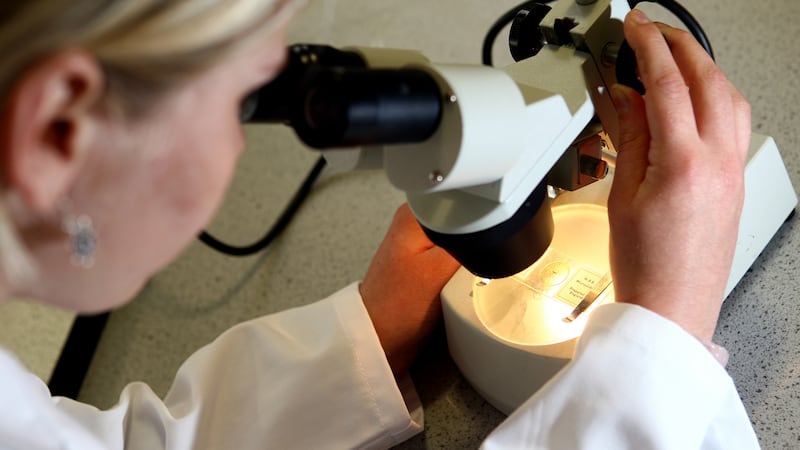Theresa May’s recent Platform Piece (August 16) made particularly interesting reading coming 100 years to the day since John Dillion announced that “Partition was as dead as Queen Anne.” (‘On this Day’, August 16) It was searingly accurate in part yet cavalier with the truth when necessary. The “special relationship” between Britain and Ireland has always been one where the British has sought to colonise and subjugate the Irish. Unfortunately, there has also always been a willing native cohort to maintain and enforce that dictate with James Connolly referring to this “ruling by fooling” as “a great British art with great Irish fools to practice on”.
Mrs May is absolutely correct when she states that “… the unique arrangements between Ireland and Northern Ireland which have underpinned the peace process have been in place well before our membership of the EU” and were first publicly crystallised after the Darlington Conference in September 1972, a series of talks which had absolutely no input from either the 26-county administration or any nationalist party. Later reaffirmed in the 1993 ‘Downing Street Declaration’ this unequal relationship and subvention of democracy eventually spawned the Belfast/Good Friday (dis)Agreement and is again asserted by the British prime minister minus the fig leaf and comfort blanket of any common membership of the EU which was so central to selling the idea in 1998 that removing Arts 2 & 3 of the Irish Constitution was of no great significance.
She is, however, entirely wrong to say that “citizen rights (per the Agreement) are permanent and inviolable.” They are in fact subordinate to both the British Doctrine of Parliamentary Supremacy and to change by Constitutional Referenda in the 26 counties. (The right of anyone born on the island of Ireland to Irish citizenship as promised in the original Agreement has already been revoked in 2004 by the 27th Amendment to the Constitution of Ireland.)
Current British counter insurgency strategy, developed mostly from their occupation of this part of Ireland, not only now requires them to ‘control the narrative’ but also necessitates that narrative to come from the mouth of those being controlled in order to ‘shape perceptions’ in local communities.
Among those currently championing John Major’s “totality of relationships” and those failing to notice or to understand the enormity of the missing comma in the infamous “Britain has no selfish strategic or economic interest in remaining in Ireland”, Britain continues to find “many great Irish fools to practice on”.
P NUGENT
Galbally, Co Tyrone
For a change let’s put innocent victims first
I’d be happy another time to discuss with Martin Galvin or Mark Thompson the merits of the IRA’s campaign of violence, during which it tried to unite Ireland by blowing its people to bits. We could debate in detail whether there is an equivalence between paramilitaries – whose aim was to take life and cause destruction – and the security services, who, in the main, sought to save lives and prevent damage – but it deflects from the issue at hand, which is pensions for ordinary victims of the Troubles.
As I understand it, around 390 such individuals would qualify for consideration for a needs-based pension, required because of disabilities inflicted by violence. It seems that the main reason they are not receiving payments is a disagreement over the status of 10 former paramilitaries, four of whom are republican and six loyalist. I believe that the 390 people should receive the needs-based pension as a matter of priority and that the 10 contentious cases should not cause further delays.
If any of the paramilitaries find themselves in financial distress, there is a case that they should also receive separate assistance.
Society broke down partially in Northern Ireland, with the result that many young people became involved in violence who may otherwise have led law-abiding lives. Some are left with significant trauma, physical disabilities and mental health problems. If they are not being looked after by their organisations, a compassionate society that is focussed on the future should look at their need.
Is it too much to ask that the republican movement agree to this? If so, I would suggest that the two governments should act together so that, for a change, innocent victims are put first.
TREVOR RINGLAND
Holywood, Co Down
Delving into the past
Deaglán de Bréadún raises an interesting hare when he records in his article, (August 14) ‘...pamphlet (to Allied-American troops) claims without giving any real evidence that the great majority of the citizens of Éire privately hope for an Allied victory’.
No doubt as he wrote this column he must’ve considered that populace alternatively wishing for an Axis victory that would have sorted out Britain, partition, the Jews, gypsies, the mentally disabled, those of awkward opinion and so on. Yes, I like to imagine that the then Catholic Ireland of de Valera did privately hope for an Axis defeat.
It’s too uncomfortable to consider the other, even if the taoiseach did express sorrow to the German nation as per protocol upon the death of Hitler.
In April 1945, with the horrors already discovered in Poland and known to all government of these islands. Other war-neutral European countries such as Sweden and Switzerland, didn’t follow protocol on this occasion. Portugal and Spain did.
NORMAN MEHARRY
Belfast BT4
Economic plan for united Ireland
Some Unionists opposed to a united Ireland state that due to the current Northern Ireland deficit, a united Ireland would not be feasible as the Republic could never meet the difference.
The current deficit in the north is £9bn – £20bn is spent; £11bn is taken in by way of tax, half of which (£5.5bn) is taken in by way of income tax
If the total spend was reduced by 6 per cent year on year for five years, this would bring the total spend down to £14.6bn ie £20bn – £0.94, £0.94, £0.94, £0.94, £0.94.
If we can also increase income tax by 6 per cent for the same period that will take income tax to £7.36bn ie £5.5bn – £1.06, £1.06, £1.06, £1.06, £1.06). Multiply £7.36bn by 2 – total take is £14.7bn.
Job done.
JOHN McSORLEY
Belfast BT5
Outstanding success
On behalf of the Controlled Schools’ Support Council, I would like to take this opportunity to acknowledge the outstanding success of pupils who received their A-level results last Thursday. We should all celebrate that once again, results have improved overall.
The controlled education sector, which comprises 48 per cent of all schools in Northern Ireland, is facing a range of complex challenges particularly in terms of funding. It is important, therefore, to thank our teachers, principals and governors for their commitment and dedication.
CSSCs’ own research has shown the diversity of the controlled sector in terms of gender, socioeconomic background and religion. We will be working with controlled schools and other education stakeholders to address issues such as continuous improvement to enable pupils to fulfil their potential.
I wish every young person who received their A-level results well for the future on whatever career path they choose.
BARRY MULHOLLAND
Controlled Schools’ Support Council, Belfast







